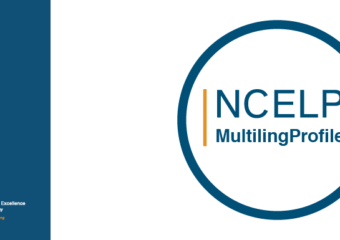The call for applications for the NCELP MFL Continuing Professional Development (CPD) Autumn Term Courses is now open
Our FREE CPD course will offer an unparalleled opportunity for teachers to develop a comprehensive understanding of the 2016 MFL Pedagogy Review recommendations, providing a springboard for any curriculum and pedagogy development planning in light of the new subject content for GCSE French, German and Spanish and are running across three terms in the 2022 calendar year. The course is in line with the:
- 2016 MFL Pedagogy Review recommendations
- 2021 Ofsted research review
- New Subject Content for French, German and Spanish GCSE – for first teaching in 2024 with first exams in summer 2026.
The course is free to attend and will consist of five 2.5 hour remote learning sessions over one term complemented by online peer and instructor support.
Applications are currently open for the Autumn Term Courses beginning in week commencing 12 and 19 September 2022.
You will be successfully admitted to register for a course if:
- You are involved in Modern Foreign Language education (and can cascade course content to MFL colleagues, including to in-service and/or pre-service teachers or trainees).
- You are:
- EITHER working in an eligible school in England (that teaches KS3/4 French and/or German and/or Spanish) – schools that receive public funding from the government are eligible.
- OR a state-funded university-based or SCITT-based teacher trainer providing courses to secondary pre-service teachers or trainees in French and/or German and/or Spanish teaching.
For Autumn term 2022, this includes:
- Practising teachers in state schools (any number of teachers can apply from a single school – but numbers may be restricted if demand is very high)
- Unqualified practising teachers
- Secondary school advisors/consultants (employed by a school, an academy trust or a local authority to support state schools)
- Teacher trainers
The course is designed for those new to NCELP approaches, though it would also suit participants who want to develop their understanding further (for example teachers who have already adopted NCELP Schemes of Work).




